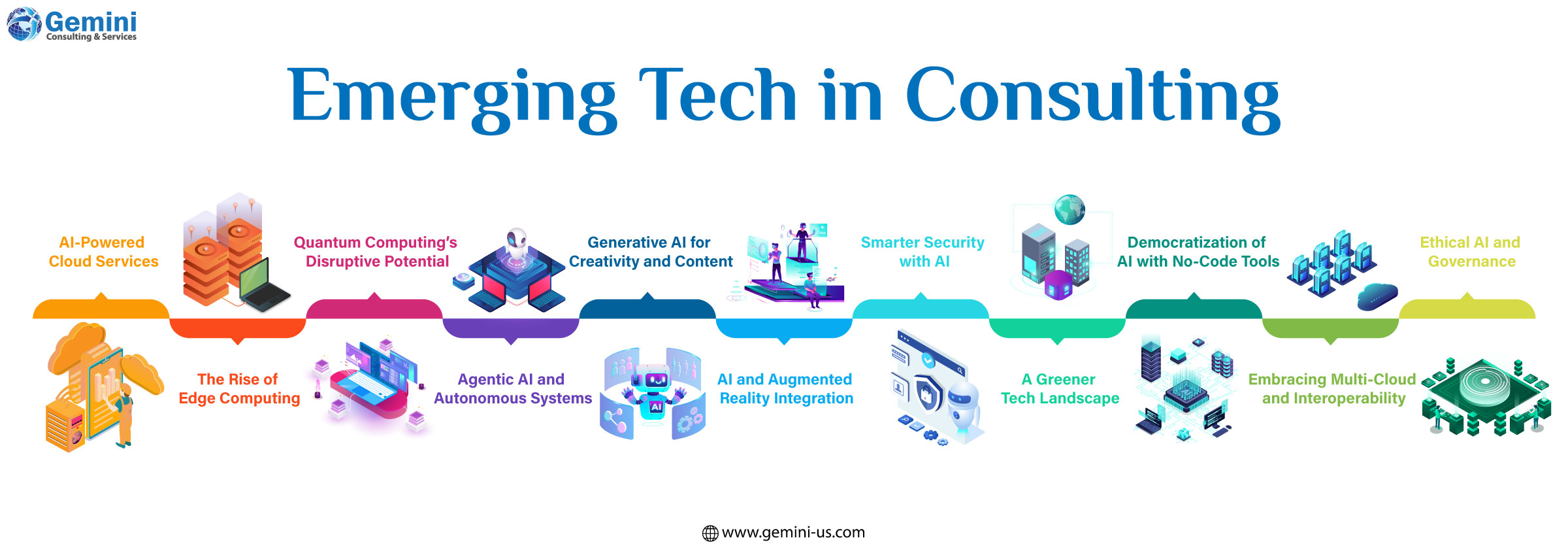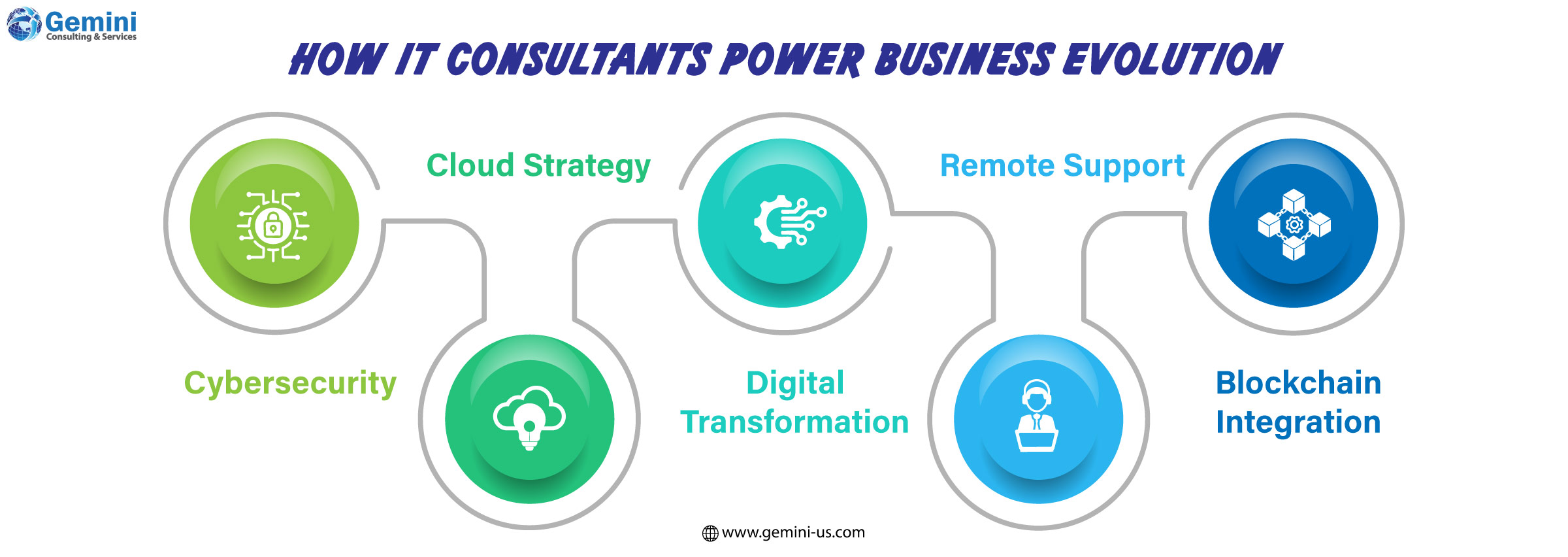In today's rapidly evolving digital world, business leaders face growing pressure to adopt breakthrough technologies such as AI and cloud computing, without falling into the trap of costly missteps. However, adopting new technologies alone does not guarantee strategic success. To compete effectively in a highly competitive market, companies must also invest in people, particularly tech consultants who can bridge the gap between innovation, technology, and execution.
The Executive Tightrope: Innovation vs. Risk
Organizations are under immense pressure to innovate. Boards and stakeholders demand rapid transformation, while internal systems and teams often struggle to keep up. Balancing these opposing forces, adopting tech fast enough to stay competitive without risking business continuity, is no small feat.
This is where tech consultants make a real impact. They are not just system installers, they are strategic advisors who guide businesses through uncertainty, aligning new technologies with long-term business goals. The best consultants don’t just implement, they interpret, simplify, and steer companies towards real outcomes.
What Sets Modern Tech Consultants Apart
Gone are the days when deep technical knowledge alone defined a great consultant. Today’s tech advisors must combine technical fluency with strong communication skills, change management capabilities, and product-oriented thinking.
Key competencies of Tech Consultants Today
- AI & Cloud Expertise: The ability to build robust AI models, optimize multi-cloud strategies, and implement secure, scalable architectures.
- Strategic Communication: Translating technical complexities into executive-level insights and ROI-driven narratives.
- Change Management: Helping organizations overcome resistance to change and build internal centers of excellence.
- Product Thinking: Prioritizing impact-driven features and rapid MVP iterations over bloated, multi-year projects.

As we look ahead, several key trends are redefining what businesses need from IT consultants, and how consultants must evolve to meet those demands.
1. AI-Powered Cloud Services
AI is transforming how businesses leverage cloud platforms. Companies are embedding AI tools like machine learning and natural language processing into their workflows to drive personalization, automate tasks, and unlock real-time insights from massive datasets.
Consultants will play a pivotal role in helping companies integrate these tools effectively, whether by reducing customer support costs through AI chatbots or automating repetitive internal processes to free up human capital.
2. The Rise of Edge Computing
Edge computing is becoming very popular due to the growth of the Internet of Things (IoT). Processing data closer to its source improves speed and reduces bandwidth usage, especially in sectors like healthcare and manufacturing.
This shift requires consultants to understand decentralized AI models and help businesses implement solutions that balance privacy, performance, and real-time responsiveness.
3. Quantum Computing’s Disruptive Potential
While still emerging, quantum computing is on the horizon and promises to solve problems today’s systems cannot. From optimizing complex logistics to accelerating AI model training, quantum technologies will open new possibilities.
IT consultants will be instrumental in exploring practical applications and helping clients prepare for a post-quantum computing future.
4. Agentic AI and Autonomous Systems
The world is now witnessing the emergence of Autonomous AI systems that can make independent decisions. Whether managing supply chains or analyzing business data, these systems increase efficiency but also raise ethical questions.
Consultants must advise not only on implementation but also on responsible AI governance, transparency, and bias mitigation.
5. Generative AI for Creativity and Content
Generative AI tools are reshaping how content is created, from marketing materials to product designs. Businesses can now co-create with AI, accelerating workflows and unlocking new creative directions.
Consultants can guide organizations in deploying these tools effectively, ensuring that creativity is augmented, not replaced, by technology.
6. AI and Augmented Reality Integration
AI coupled with augmented reality has enormous potential to enhance customer experiences across sectors. In retail, users can virtually try products. In healthcare, professionals benefit from interactive, real-time visualizations.
Advisors must help clients design these experiences thoughtfully, ensuring they serve real business goals rather than chasing hype.
7. Smarter Security with AI
With cyber threats becoming more sophisticated, AI is now at the forefront of security strategies. From anomaly detection to automated responses, smart systems offer better protection.
Consultants need to champion proactive security models like zero trust, which verify every access request, ensuring data stays secure without slowing down operations.
8. A Greener Tech Landscape
Sustainability is no longer optional. Companies are under pressure to reduce their carbon footprint, and cloud and AI technologies can help.
Consultants must guide clients toward energy-efficient infrastructures and use predictive analytics to minimize waste and optimize resources, aligning technology with environmental goals.
9. Democratization of AI with No-Code Tools
The rise of no-code and low-code platforms is making AI accessible to non-technical teams. This is helping enterprises to create and deploy application faster, thereby improving agility and productivity.
Consultants are essential in driving adoption, offering training, and ensuring that these tools align with broader IT governance and security standards.
10. Embracing Multi-Cloud and Interoperability
To avoid vendor lock-in and optimize costs, many organizations are adopting hybrid and multi-cloud strategies. Enterprises require seamless integration across platforms to avoid issues in future.
IT consultants must design architectures that are flexible, interoperable, and resilient, helping companies choose the best tools for each need without sacrificing cohesion.
11. Ethical AI and Governance
With great power comes great responsibility. As AI becomes more embedded in everyday operations, the need for ethical frameworks grows. Businesses must navigate privacy laws, avoid algorithmic bias, and build systems that are fair and transparent.
Consultants have a duty to lead the charge in developing clear governance models and ensuring compliance with evolving regulations.

IT consultants are increasingly involved in every aspect of business transformation. The following are the main areas, where they can make an impact.
- Cybersecurity: Developing resilient, secure architectures that minimize downtime and protect sensitive data.
- Cloud Strategy: Crafting scalable, cost-effective migration and management strategies.
- Digital Transformation: Overhauling legacy systems and introducing automation with technologies like RPA (Robotic Process Automation).
- Remote Support: Providing infrastructure management, VDI solutions, and 24/7 monitoring for hybrid workplaces.
- Blockchain Integration: Guiding businesses through smart contracts, secure data sharing, and decentralized applications.
If your enterprise is looking for consultants who can seamlessly integrate AI with strategic planning for business success, Gemini Consulting & Services is here to help. Contact us to speak with our consultants, who can guide you toward a successful future.
Looking Ahead
As the digital frontier expands, the consulting industry will remain a cornerstone of successful technology adoption. Consultants will need to stay ahead of the curve, not only by mastering new technologies but by understanding how they fit into broader business strategies.
For businesses, working with the right consultants means unlocking innovation, reducing risk, and paving the way for smarter, more sustainable growth. For consultants, it means being more than technologists, they must be strategists, educators, and change-makers.
The future belongs to those who can navigate complexity with clarity and turn disruption into opportunity.



